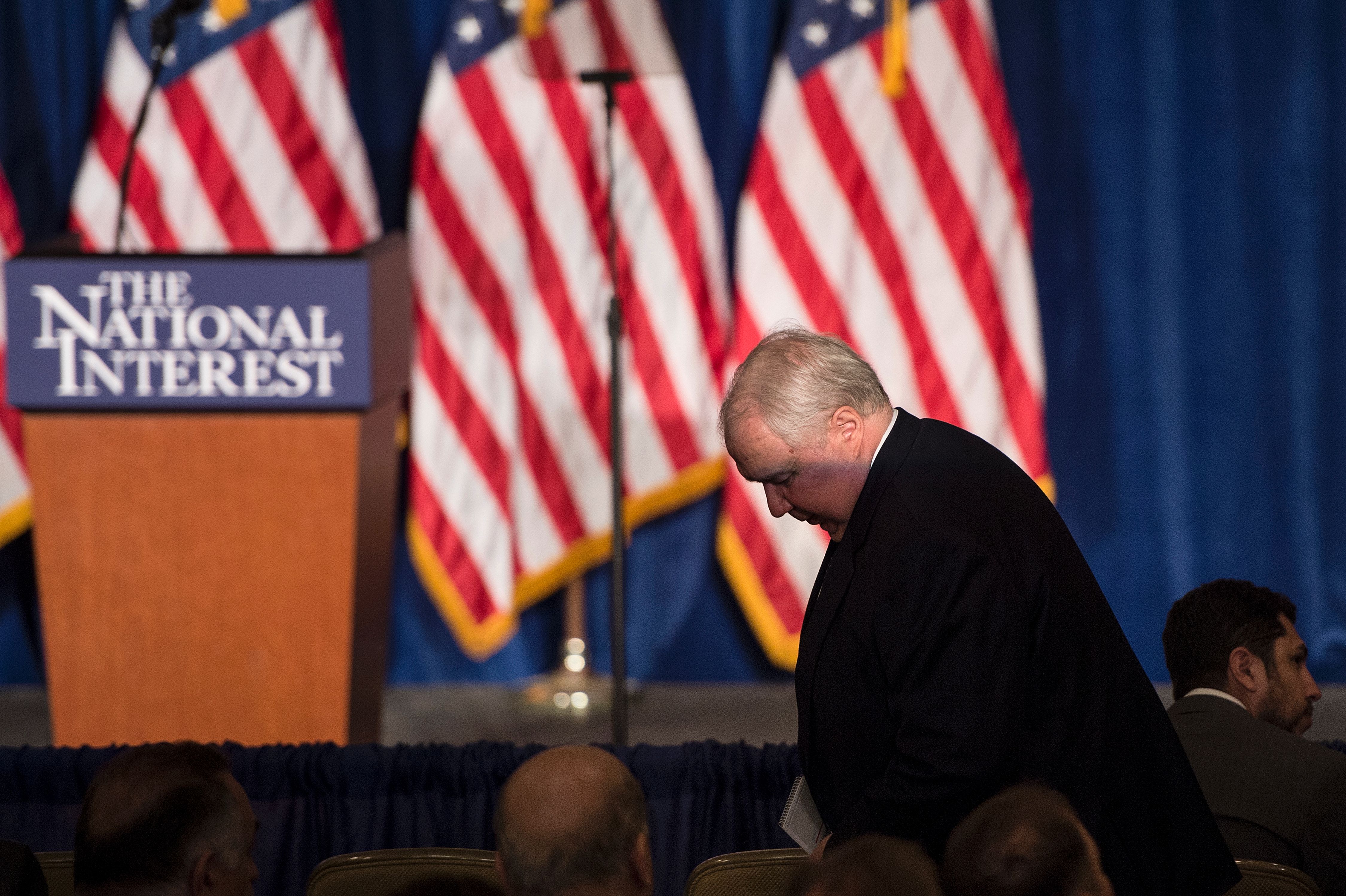The Russians have obtained secrets of the United States government from behind White House doors, according to new reports—and all they had to do was ask.
According to an explosive report by the Washington Post on Monday, both current and former U.S. officials claimed that President Donald Trump revealed “highly classified information” to Russian Foreign Minister Sergey Lavrov and Russian Ambassador Sergey Kislyak during a visit to the Oval Office last week. From the Post:
The information Trump relayed had been provided by a U.S. partner through an intelligence-sharing arrangement considered so sensitive that details have been withheld from allies and tightly restricted even within the U.S. government, officials said.
The partner had not given the United States permission to share the material with Russia, and officials said that Trump’s decision to do so risks cooperation from an ally that has access to the inner workings of the Islamic State. After Trump’s meeting, senior White House officials took steps to contain the damage, placing calls to the CIA and National Security Agency.
“This is code-word information,” said a U.S. official familiar with the matter, using terminology that refers to one of the highest classification levels used by American spy agencies. Trump “revealed more information to the Russian ambassador than we have shared with our own allies.”
The circumstances of the alleged revelations are extremely shady, and not just given the Trump administration and campaign’s long-documented connections to Russian government and private-sector interests. The disclosure likely took place during a closed-door meeting with Lavrov and Kislyak that only became public after state-owned news agency Russia Today posted photographs of the men together.

(Photo: Brendan Smialowski/AFP/Getty Images)
Kislyak’s involvement here is sure to raise eyebrows given that he sits at the heart of the ongoing Russia saga that just last week led to the abrupt firing of Federal Bureau of Investigation Director James Comey—a firing that, to many political observers, seemed tantamount to the same obstruction of justice that ultimately felled President Richard Nixon in the aftermath of the Watergate scandal.
While certainly serious, it does not seem as if Trump’s disclosure was a result of some Manchurian Candidate-esque plot to install a Russian agent in the highest echelons of the federal government. Rather, at least according to the Post report, Trump was simply being his brazen, off-the-cuff self. From the Post:
During that meeting, officials said that Trump went off script and began describing details about an Islamic State terrorist threat related to the use of laptop computers on aircraft…. In his meeting with Lavrov, Trump seemed to be boasting about his inside knowledge of the looming threat. “I get great intel. I have people brief me on great intel every day,” Trump said, according to an official with knowledge of the exchange.
Trump went on to discuss aspects of the threat that the United States only learned through the espionage capabilities of a key partner. He did not reveal the specific intelligence gathering method, but described how the Islamic State was pursuing elements of a specific plot and how much harm such an attack could cause under varying circumstances. Most alarmingly, officials said, Trump revealed the city in the Islamic State’s territory where the U.S. intelligence partner detected the threat.
There’s one unusual question running through the Post story: Who exactly were these “current and former” U.S. officials with direct knowledge of Trump’s conversation? The immediacy of the leak to the Post suggests that some officials may have taken it upon themselves to address what they saw as a potentially catastrophic problem for the U.S. intelligence community. Every high-profile firing of a senior federal official by Trump tends to set off a new round of public leaks, a growing flood of disclosures threatening to erode the White House’s control over its public face.
It would be too conspiratorial to suggest that there’s some secret network of misfit bureaucrats stirring up trouble, but perhaps we’re seeing the strands of civic duty supposedly present to public servants actually coming to life.





